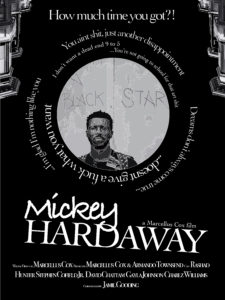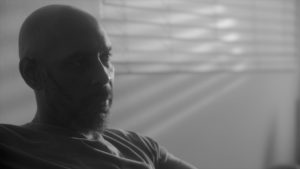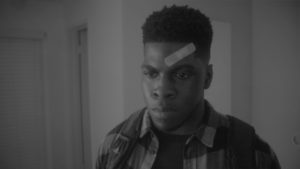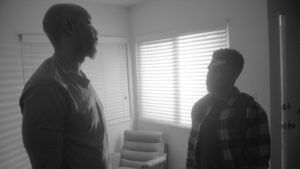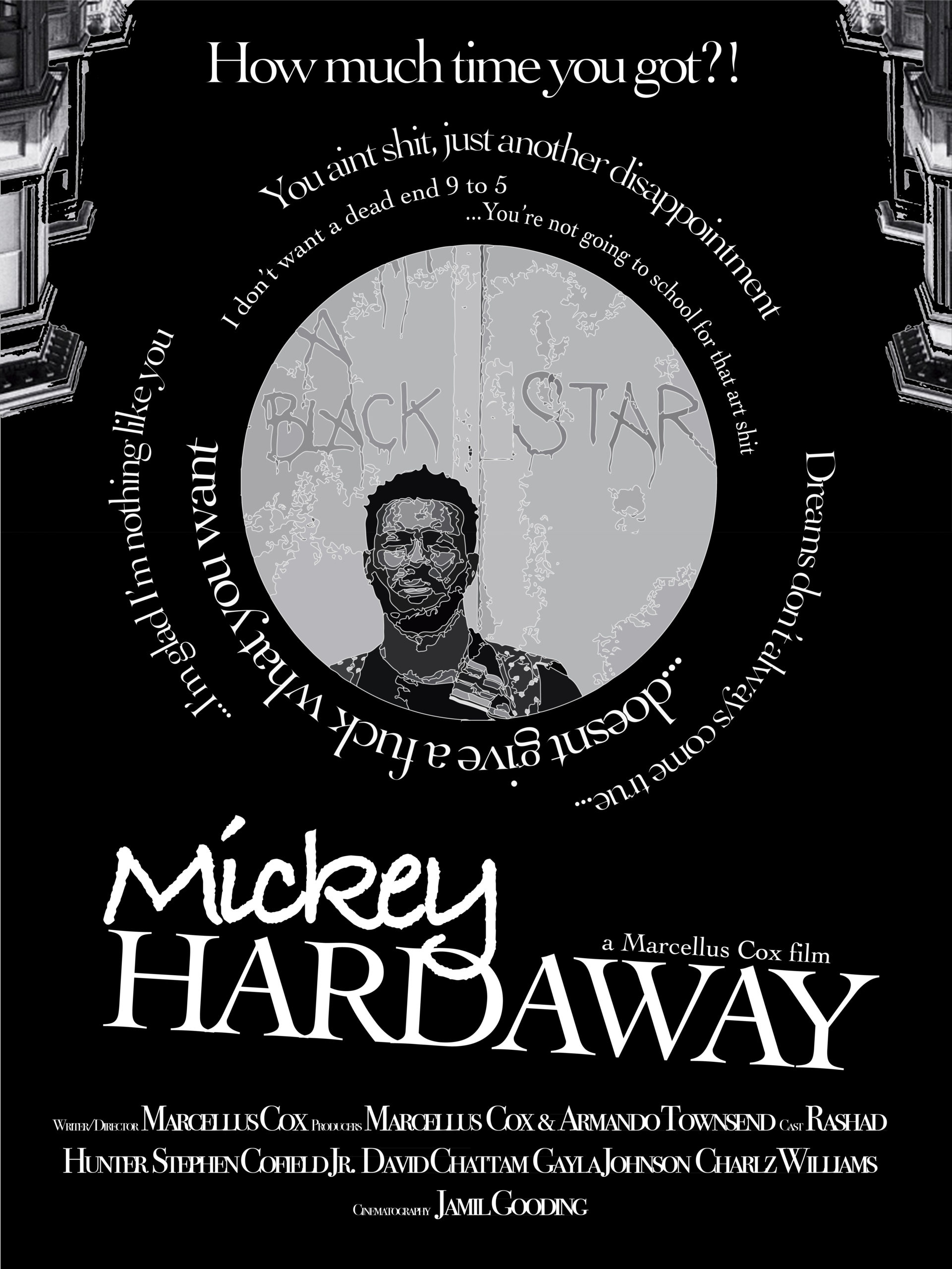
Short Film Review “Mickey Hardaway”
WATCH THE TRAILER HERE
First, the Recap:
Courageous, bold, and desired dreams. May it never be said that showing just how intent you are to pursue that which you wish to attain, both personally and professionally, is a bad thing. Yet, there may always be those who seem to not understand, unwilling to realize the value of something we seek, missing what gain in life it could represent when it comes to our hope of fulfillment. Can we, WILL we, stand firm in the face of such adversity and win? Or will the cost be too great? For a young student and aspiring sketch artist named Mickey Hardaway (Rashad Hunter), these questions will come to a head as he knows beyond doubt what he views as his future. However, seemingly impossible obstacles to overcome remains–his own obstinate father, Randall (David Chattam), and a legacy of maltreatment.
Next, my Mind:
It is no small thing to watch films that address the all-too-present specter of abuse, physical and mental, brought against so many who are only trying to see their lives advance, yet face the menace of those who simply won’t choose to accept or entertain any reality other than their own. The toll it can take manifests in one of two ways–total inward desolation of the dreamer whose ambitions and objectives get crushed under the weight of misunderstanding and intransigent thinking or, on the opposite end of the spectrum, the creation of a will so strong that it will test and fight back against those immovable opinions to the point of absolute resolve that could actually break their oppressors. This is all potently explored through the 19-minute dramatic short film effort from writer/director/producer Marcellus Cox, executive producers Stephen Cofield and Armando Townsend, and associate producer Samuel Whitehill.
Approaching its thematic notions through the eyes of a young African-American student who’s found a calling and skillset that excites and gives him total anticipation of what his future could hold, the narrative then delves fully into his patterns of both the physical and psychological forms of abuse he has been forced to endure while just attempting to maintain his positivity and sought-after goals, even despite having several other individuals in his sphere who have done nothing but aid and encourage him to stay the course and make things happen. It’s almost like being utterly stuck in two different worlds, and the means by which the film demonstrates the effects it is all having on Mickey deftly fashions an atmosphere both pleasingly gladdening then overtly tumultuous and violent. It’s a smartly conceived premise to illustrate both ends of Mickey’s plight, and endears you to the character from start to finish, fully empathizing with his circumstances, and wanting to see him overcome it all.
The film also makes a play at necessary concepts that are likewise key factors in stories such as this, overall addressing that need for talking things out with those who are in our corner and have our best in mind, bullying, the aforementioned abuses, believing in oneself, facing the odds, self-doubt, regrets, resentments, contrary parental viewpoints based on life experience even if skewed in the situation, and challenging “old fashioned” and/or stubborn outlooks when putting one’s own past hurts and disappointments onto someone else. All of these ideas find merit to be exposed and confronted, which only allows the film’s foundational designs to stand out even more and have the style of influence it should present for contemplation. The finale places an emphatic and stirring endpoint to events here but also leaves things wide open for both conjecture and further consideration, which would explain why this is offered as a proof of concept project ultimately.
Hunter just oozes both heartfelt and intensely volatile charisma, demeanors each highly needed, through his role as title character Mickey, a young man with total commitment to that which he undeniably believes represents his life’s holy grail via being a successful artist, yet has to so blatantly contend with his own inner and outward demons that have continued to hound him and his aims. Still receiving more objective and positive motivation from some who believe in him unequivocally, Mickey then has to make the decision to face up to the harsh verbal and physical manhandling of his overbearing and stuck-in-his-ways father, who imposes the “I know what’s best for you” mantra while really hiding from his own misgivings and past mistakes. Even as it all comes to a potentially relationship-shattering head, Mickey makes his choice, the ramifications of which are purposefully left more to hints and suppositions, with Hunter’s overall enacting of these turbulent emotional states completely spot on, realistic, and filled with relatable viability.
Multiple primary supporting roles are present in the film, first from Chattam, who also dominates the screen in his sequences as Mickey’s gruff, imperious father Randall, who more than seems embittered by what he begrudgingly accepts as a totally failed life plan, altered by happenings he bears deep anger against, the inward stormy nature of which he takes out on his own son. Refusing to see any reason or logic behind the choice Mickey is trying to make for a future, Randall’s building rage and discontent threatens the pair’s barely held relationship, and as it boils over, it could spell an unfavorable end. Chattam’s quietly smoldering fervor in how he portrays the character is perfect, allowing that simmering fury to stew to appropriately executed levels before coming out in full force at the intended time, a performance more that noteworthy in the scheme of this story’s thematical targets.
Stephen Cofield arrives on scene as Mickey’s confidant and supporter, psychologist Dr. Cameron Harden, who does his level best both as a professional and one truly believes as a friend to assist in adjusting Mickey’s hesitations, frustrations, and yearnings to be free from the assaults he has already experienced and continues to encounter. Charlz Williams also makes his mark on the more affirmative and constructive side of Mickey’s life as guidance counselor Mr. Pitt, who becomes a catalyst for what events unfold in Mickey’s purpose to stand strong and up to his father in the convictions about his choices and dreams. An additional voice appearance is made her as well thanks to Kimberly Christian as the “voice of reason”. So, in total, “Mickey Hardaway” delivers indisputable, incontrovertible, impactful, and deeply compulsory truths about the actualities of abuse, our needs to address it better, take action to help those suffering in it, and making it clear that holding firmly onto what you dream for is unreservedly needed more than ever in this world. Perhaps we’ll see a further examining of this story should a feature film come from a very, very promising beginnings.
As always, this is all for your consideration and comment. Until next time, thank you for reading!
